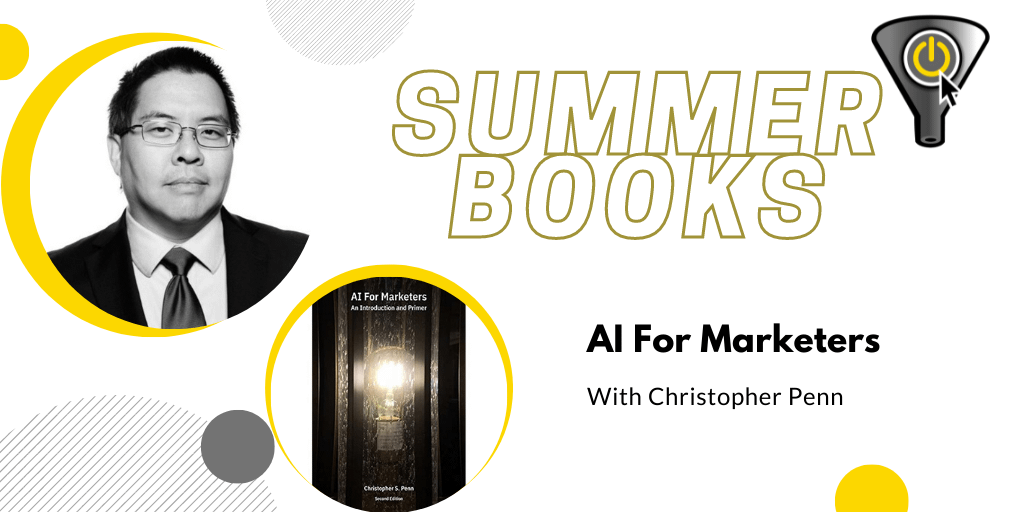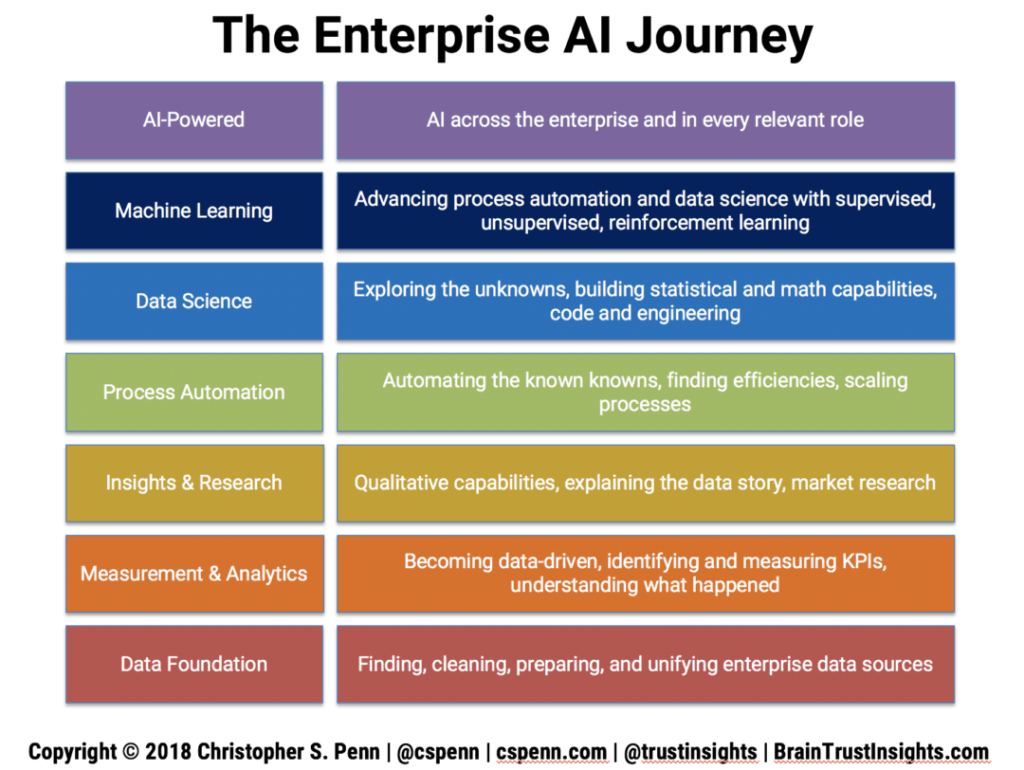Do you own a crystal ball to predict the future? No? Well, I have good news for you. You don’t need one.
When you feed lots of historicals into a machine, it doesn’t have to know what those numbers mean in business terms. Thanks to sophisticated data models, machines can determine the trends behind your numbers, including a pretty accurate prediction of what the next numbers in the series will be.
That’s not all there is to data science though. Our guests believe it’s what takes our analytical abilities up the evolutionary ladder, from what happened, to how it happened, to how it might happen.
This episode talks about how cloud computing, which crunches these numbers, has changed data science, doing everything that high-end servers used to do, at a fraction of the cost. It also covers the skillsets of the people needed to help machines work. To learn about how you can start implementing data science in your marketing, I’m joined by two people who are well versed in the field.
Richard Fergie lives in the UK. He showed a penchant for math, which led him to Oxford University where he took his bachelors in mathematics. After spending time living in South America, he moved home and took a liking to the quant-heavy world of pay per click marketing. He has taken the 10 years of experience he got consulting on digital marketing and web analytics projects to found Forecast Forge, a quick and accurate forecasting tool that runs on Machine Learning.
Brett was an early SaaS pioneer and helped change the PR industry by creating one of the first companies to develop a real-time media monitoring and analysis platform that was able to successfully generate business intelligence from both traditional and social media.
Brett would lead the company as both the CEO and chief architect and developer of the platform as well as being awarded 2 patents.
Brett led his company through several significant transitions, including recognizing the need for big data and machine learning capabilities very early on as well as recognizing the importance of social media.
Brett also identified the need for both journalist and publication data from the aspect of creating new markets as well as leveraging the data to further improve the analytics.
Brett’s company, MediaMiser, would be acquired in 2014.
Brett would later go on to improve his own analytical capabilities by achieving certifications in both data science and AI from the University of Waterloo and the University of Toronto.
Brett also has a bachelor’s degree from Western University and a diploma in PR and communications from Algonquin College.
Let’s go talk to Richard Fergie & Brett Serjeantson.
People/Products/Concepts Mentioned in Show
| What you need to do | Tools that can do it |
| Visualize large datasets | Google Colab/Jupyter, Matplotlib |
| Find trends, use predictions to decide next action | Pomegranate |
| Do regression analysis | Pandas (built on NumPy) |
| unclassified | Prophet, PyTorch, TensorFlow |
- Python
- R
- Emma Franks Search Engine Land article on Forecasting with Excel
- Eric Siegel’s book: Predictive Analytics
- Richard’s Article on Optimizing the Timing of Paid Media Spend
Episode Reboot.
Check out https://www.forecastforge.com/learning/





